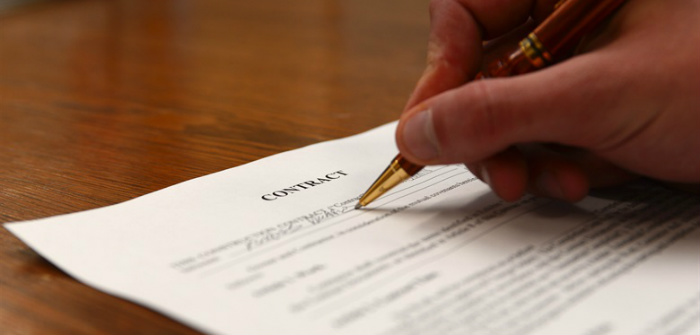Buying a property can be both an exciting and stressful experience. You spend hours wading through the property listings looking for your dream home.
You spend days viewing the properties that catch your eye. Then, you have the hassle of trying to negotiate a lower price for the property you’ve decided you want.
Eventually, you have an offer accepted and bingo! You think you’ve secured the property you always dreamed of, only for another buyer to come in at the last minute and beat your offer.
This is called ‘gazumping’. It happens when the sellers of a property accept an offer, only to then accept another higher offer days, sometimes weeks or even months, later.
You may also hear the term ‘gazundering‘ but this should not be confused with gazumping. Gazundering is kind of the opposite, as it’s the buyer who changes their offer to a lower figure.
Why Does Gazumping Happen?
Put simply, gazumping usually happens because the seller wants to get the highest value for their property.
However, it can also happen for other reasons such as the seller getting frustrated if they feel like the person who put in the first offer is dragging their feet. It can also be because the seller wants to move quickly, and the gazumper is in a better position (i.e. they are chain-free, or might be cash buyers).
Buying A Property? FREE Step-By-Step Platform
Is Gazumping Legal In The UK?
In a word, yes. In England, the buyer is not legally obliged to buy a property, and a seller is not legally obliged to sell a property until contracts have been exchanged. As the exchange of contracts does not happen until towards the end of the conveyancing process, there is a large window of opportunity for gazumping to occur without any legal consequences.
When buying property in Scotland, gazumping is a much rarer occurrence. Many people assume this is because the process for purchasing a property is different, and the legal commitment to purchase and sell a property happens much earlier. However, it is more to do with the process and code of practice that solicitors abide to in Scotland that makes gazumping much more difficult.

How To Protect Against Gazumping
Gazumping will always be a threat to your purchase of a property, right up until you exchange contracts. But, there are several things you can do to reduce your risks.
1) Get Your Paperwork In Order
When you have an offer accepted on a property, the selling estate agent will ask for proof of funds. This is basically the evidence that you have the money or finances in place to be able to proceed with the purchase.
Therefore, if you are buying with a mortgage, make sure you have your agreement in principle (AIP) to hand, or bank statements if buying with cash.
It will also help if you have a solicitor lined up as this will help get the conveyancing process started more quickly. The further down the conveyancing process you get, the more cost there is for the seller to accept another offer.
We tested this once when a house we fell in love with went under offer before we were in a proceed-able position. Once we did accept an offer on our house, we enquired about viewing the property that was under offer.
While we were obviously considering gazumping someone ourselves, we would have only done so if the sale wasn’t progressing very well.
However, the sellers informed us things were proceeding nicely and their buyer had already had a survey done, as a result, they weren’t willing to entertain our viewing request, even if it could lead to a higher offer.
So, our experience shows the importance of getting your paperwork sorted. The sooner the buyer sees that you’re moving things along, the more confidence they’ll have in you completing the purchase – and the less open they’ll be to gazumping offers!
2) Get The Property Taken Off The Market
Make it a condition of your offer that all marketing of the property is stopped, and that the estate agent does not allow any further viewings.
This won’t protect you from being gazumped by buyers who have already viewed the property, but it will help to prevent any new potential buyers entering the picture.
We have always made a point of making sure our offer is on the condition of the property being taken off the market, and we haven’t been gazumped yet!
3) Don’t Delay The Process
You are much more likely to get gazumped if the seller feels like you are slowing the process down. A slow-acting buyer gives the impression they are not a serious buyer, and so, accepting another offer from a more eager buyer may become appealing.
Therefore, ensure you respond to any questions or requests for information from the solicitors as quickly as possible. Remember, you are in a race to exchange contracts before anyone else can try and gazump you. Do everything you can to get to the contract exchange point more quickly.
A good example of this was when someone put in an offer on our property, yet they hadn’t even listed their own property for sale.
We accepted their offer but informed them the property would stay on the market until they were proceed-able.
Unfortunately, they refused to list their property until we took our home off the market. Eventually, we had to accept another offer from someone who had already sold their own home and the people who made the original offer missed out.
Not that that stopped them trying to gazump our buyer once they realised they had made a mistake! We declined their offer (even though it was higher than the one we had accepted) simply because we felt they had messed us around and waited too long!
4) Build A Rapport With The Sellers

At the end of the day, the sellers are just human. If you can build a good rapport with them and make them like you, they are less likely to be willing to entertain other offers.
This doesn’t mean you should be taking them flowers and chocolates every weekend, but, it does mean you should always be friendly and polite towards them.
Although estate agents don’t like you doing it, it can sometimes help to exchange contact details with the seller. This way you can communicate directly with them rather than relying on estate agents to pass on messages. Just remember to keep being friendly and polite whenever you give them an update or ask them questions.
This is something we have always done. At the second viewing, we offer our email address or phone number to the sellers. We are quite open and say that it might come in handy to keep the conveyancing process moving.
So far, all sellers have reacted positively to this and given us their email address or phone number in return. Our advice would be: don’t be afraid to exchange contact details with your sellers, it might come in handy further down the line.
5) Ask For A “Lock Out Agreement”
A “lock out agreement” is simply a legally binding contract between a buyer and seller, drafted up by a solicitor. It essentially gives the buyer an exclusive right to try and complete the purchase of the property within an agreed period of time. It also prevents the seller from accepting any other offers during that time.
You’ll need to speak to a solicitor to find out the cost of producing such an agreement and make sure that the seller is happy to sign one. However, if you successfully put one in place, it gives you a good level of short-term protection against being gazumped.
6) Don’t Fall For ‘Dirty’ Tricks
Although many estate agents have cleaned up their game over the past few years, there are still a few less ethical ones around that will try every trick in the book to increase their commission.
A common technique is to tell you there’s been a higher offer on the property at the last minute to try and get you to increase your offer. If this happens, make sure you ask for written proof of the offer.
Don’t feel pressured into increasing your own offer unless you are sure you can afford it and are willing to pay the higher amount.
Thankfully, this isn’t something that has happened to us, but I’m reliably informed it does still happen occasionally!
7) Take Out Home Buyer Protection Insurance

If you are really concerned about gazumping, you can take out what is known as home buyer protection insurance. This type of insurance protects you against a house purchase falling through for a number of reasons. It helps to cover the cost of solicitor, surveyor, and mortgage fees.
Prices vary depending on the type of cover you are getting. However, policies start from as little as £50 – £70 for several months cover. It can be money well-spent, particularly in fast-moving, highly competitive markets.
However, remember, while it will protect you from losing money if you are being gazumped, it can’t stop it from happening, so it can’t protect you from losing your dream home.
Still Been Gazumped? Here’s What To Do Next:
Despite everything, you can never be 100% protected against gazumping. Even after exchanging contracts, you can still be gazumped. It’s rare, and you would have a legal case against the seller, but that doesn’t mean it never happens.
If you have been gazumped legally, then all is not lost. For starters, if your finances permit it, you may be able to outbid the gazumper. Just be sure you are not over-stretching yourself or paying more than you are willing to for the property. Be aware that you could be creating a bidding war where the only winner will be the seller.
If increasing your offer is not an option, make sure the seller is fully aware of all the advantages of your offer. Are you chain-free or willing to move into rented accommodation to take yourself out of a chain?
Are you a cash buyer or is your mortgage already approved? Have you already had a survey done and are aware of an issue on the property that may put other buyers off?
Whatever it is, make sure the seller is aware of why you would be a good person to sell to. Make it clear why you are more likely to be able to complete the purchase quickly. If you can do this successfully, the seller may decide you are the safe bet, even if your offer isn’t quite the highest.
If you are actually looking to gazump someone yourself, check out our guide on how to gazump successfully.
What Is Gazumping?
To recap, gazumping means that the property seller accepts a higher offer from another buyer when they have agreed to sell their home to someone else.
This can cause frustration, disappointment and financial loss for the original buyer, who may have already paid for surveys, legal fees and mortgage arrangements.
But, there are things you can do to reduce the risk of being gazumped, as we have outlined in this article.
However, none of these methods can guarantee that you won’t be gazumped, as the seller can still change their mind or receive a better offer until contracts are exchanged.
Buyers should be aware of the possibility of gazumping and take steps to protect themselves as much as possible.
And they should also be prepared for the worst-case scenario and have a backup plan in case they lose their dream home to another bidder.





